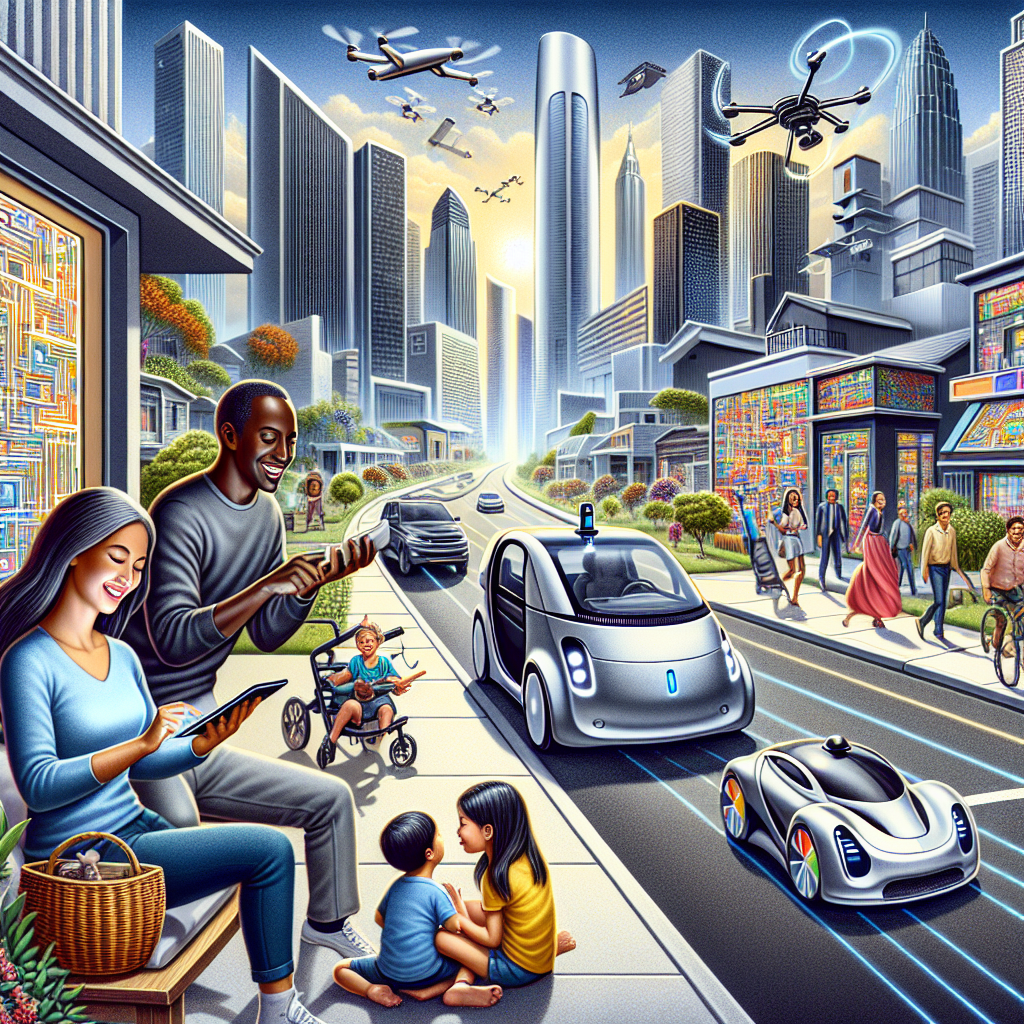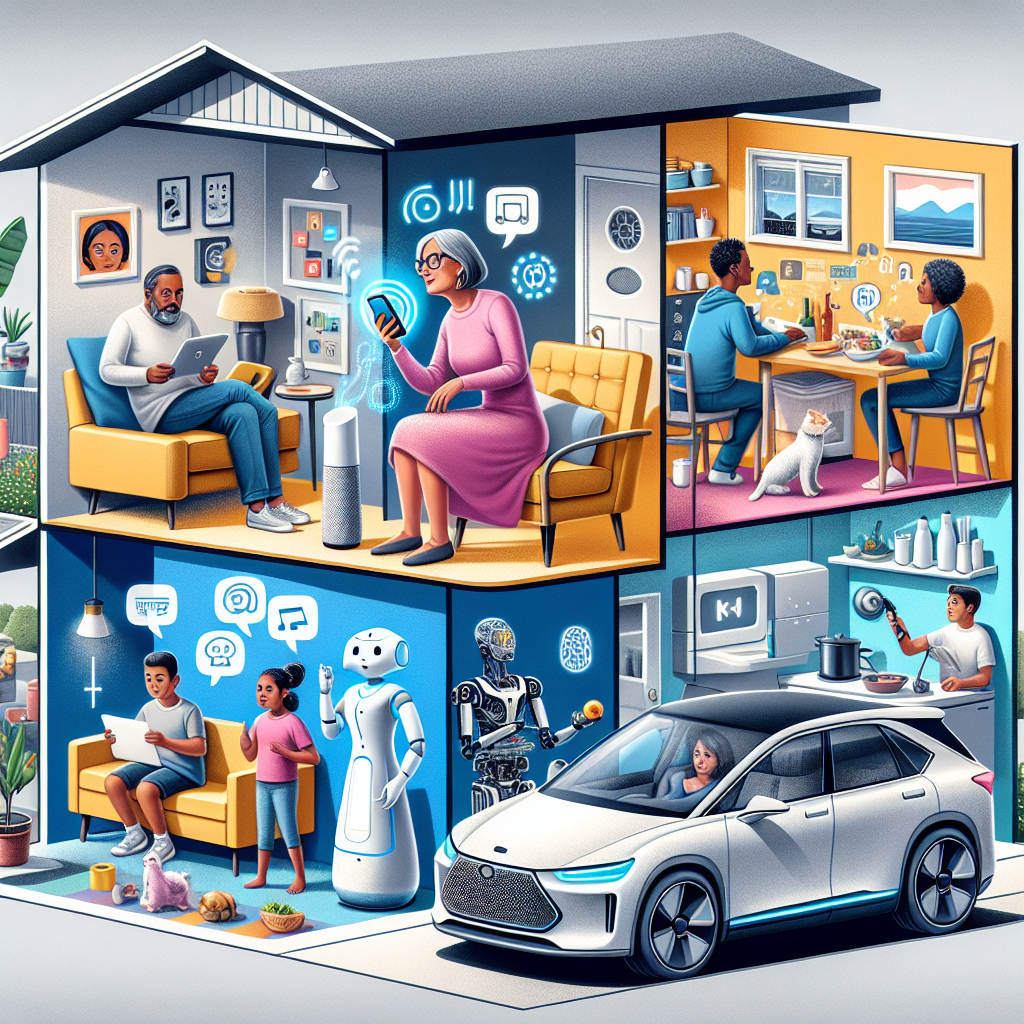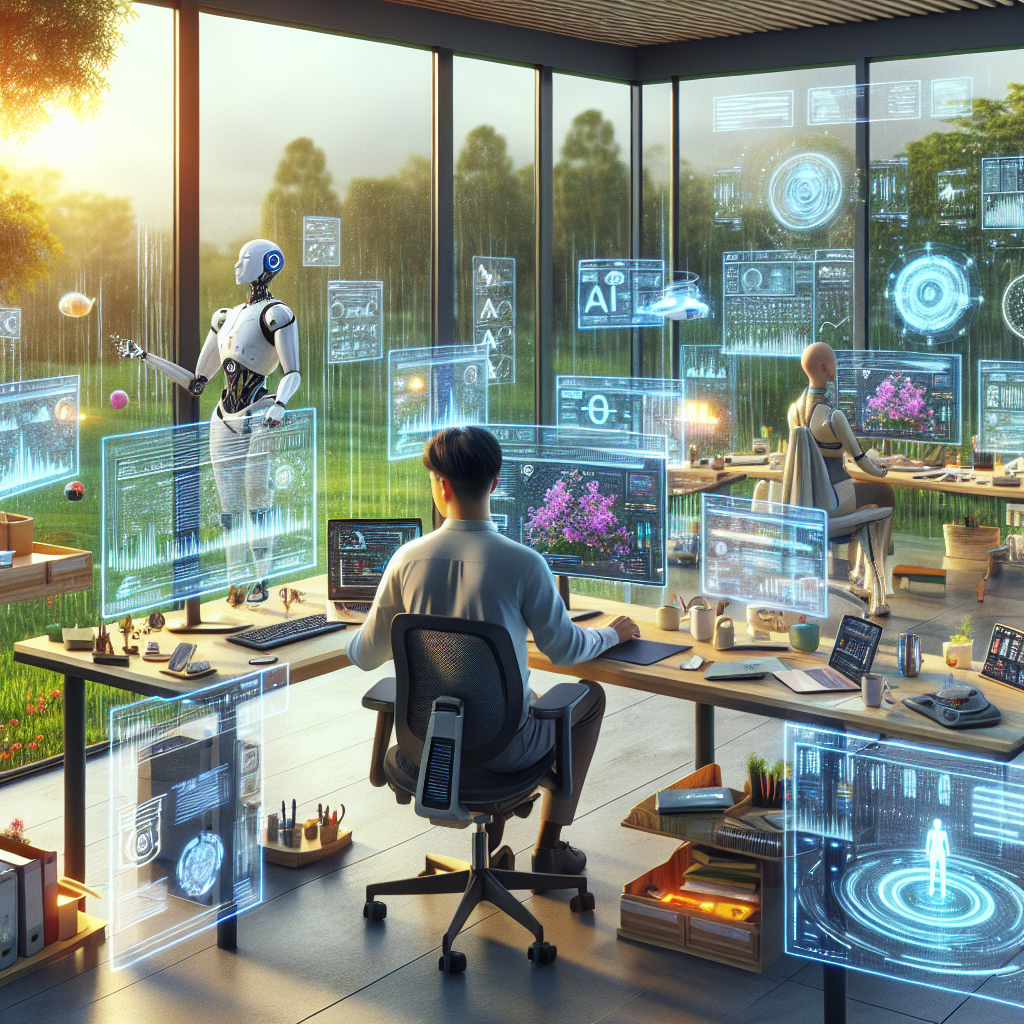-
Table of Contents
How AI is Transforming Our Daily Lives

Artificial Intelligence (AI) is no longer a futuristic concept confined to science fiction. It has become an integral part of our everyday lives, influencing how we work, communicate, shop, travel, and even manage our health. From virtual assistants to personalized recommendations, AI is reshaping the modern world in profound ways. This article explores the various domains where AI is making a significant impact and how it is transforming our daily routines.
AI in Communication and Personal Assistance
One of the most visible applications of AI is in the realm of communication. Virtual assistants like Amazon’s Alexa, Apple’s Siri, and Google Assistant use natural language processing (NLP) to understand and respond to user queries. These AI-powered tools can perform tasks such as setting reminders, sending messages, playing music, and even controlling smart home devices.
AI-driven chatbots are also revolutionizing customer service. Companies across industries use chatbots to handle customer inquiries, provide support, and streamline operations. According to a report by Juniper Research, chatbots are expected to save businesses over $8 billion annually by 2024 through reduced customer service costs.
AI in Healthcare
AI is playing a transformative role in healthcare by improving diagnostics, personalizing treatment, and enhancing patient care. Machine learning algorithms can analyze medical data to detect diseases such as cancer, diabetes, and heart conditions with remarkable accuracy. For example, Google’s DeepMind developed an AI system that can diagnose over 50 eye diseases as accurately as world-leading experts.
Wearable devices powered by AI, such as smartwatches and fitness trackers, monitor vital signs and provide real-time health insights. These tools help individuals manage chronic conditions, track fitness goals, and even alert users to potential health issues before they become serious.
AI in Transportation
AI is revolutionizing the transportation industry through innovations like autonomous vehicles, smart traffic management, and predictive maintenance. Self-driving cars, developed by companies like Tesla and Waymo, use AI to interpret sensor data, recognize objects, and make real-time driving decisions. While fully autonomous vehicles are still being tested, semi-autonomous features such as lane-keeping assistance and adaptive cruise control are already available in many modern cars.
AI also helps optimize public transportation systems. Cities are using AI algorithms to analyze traffic patterns and adjust traffic signals to reduce congestion. In logistics, AI improves route planning and delivery efficiency, reducing fuel consumption and operational costs.
AI in Education
Education is another sector experiencing significant transformation due to AI. Intelligent tutoring systems provide personalized learning experiences by adapting content to a student’s learning pace and style. Platforms like Duolingo and Khan Academy use AI to recommend lessons and exercises tailored to individual needs.
AI also assists educators by automating administrative tasks such as grading and attendance tracking. This allows teachers to focus more on instruction and student engagement. Moreover, AI-powered tools can identify students who may be struggling and provide early interventions to improve learning outcomes.
AI in Retail and E-commerce
Retailers are leveraging AI to enhance customer experiences and streamline operations. Personalized recommendations, powered by AI algorithms, analyze user behavior and preferences to suggest products that are more likely to appeal to individual shoppers. Amazon, for instance, attributes a significant portion of its sales to its recommendation engine.
AI also plays a role in inventory management, demand forecasting, and dynamic pricing. By analyzing historical data and market trends, AI helps retailers maintain optimal stock levels and adjust prices in real time to maximize profits and customer satisfaction.
AI in Entertainment and Media
AI is reshaping how we consume and create content. Streaming platforms like Netflix and Spotify use AI to recommend movies, shows, and music based on user preferences. These recommendations are driven by complex algorithms that analyze viewing history, ratings, and user behavior.
In content creation, AI tools can generate music, write articles, and even produce visual art. For example, OpenAI’s GPT models can write coherent and contextually relevant text, while tools like DALL·E can generate images from textual descriptions. These innovations are opening new possibilities for artists and content creators.
Ethical Considerations and Challenges
Despite its many benefits, the widespread adoption of AI raises important ethical and societal concerns. Issues such as data privacy, algorithmic bias, and job displacement need to be addressed. AI systems often rely on large datasets, which can include sensitive personal information. Ensuring that this data is collected and used responsibly is crucial.
Moreover, AI algorithms can inadvertently perpetuate biases present in their training data, leading to unfair outcomes in areas like hiring, lending, and law enforcement. Transparency, accountability, and inclusive design are essential to mitigate these risks.
Conclusion
Artificial Intelligence is undeniably transforming our daily lives across multiple domains. From simplifying routine tasks with virtual assistants to revolutionizing healthcare, education, and transportation, AI is enhancing efficiency, personalization, and decision-making. However, as we embrace these advancements, it is equally important to address the ethical challenges they present. By fostering responsible AI development and usage, we can ensure that this powerful technology continues to benefit society as a whole.


